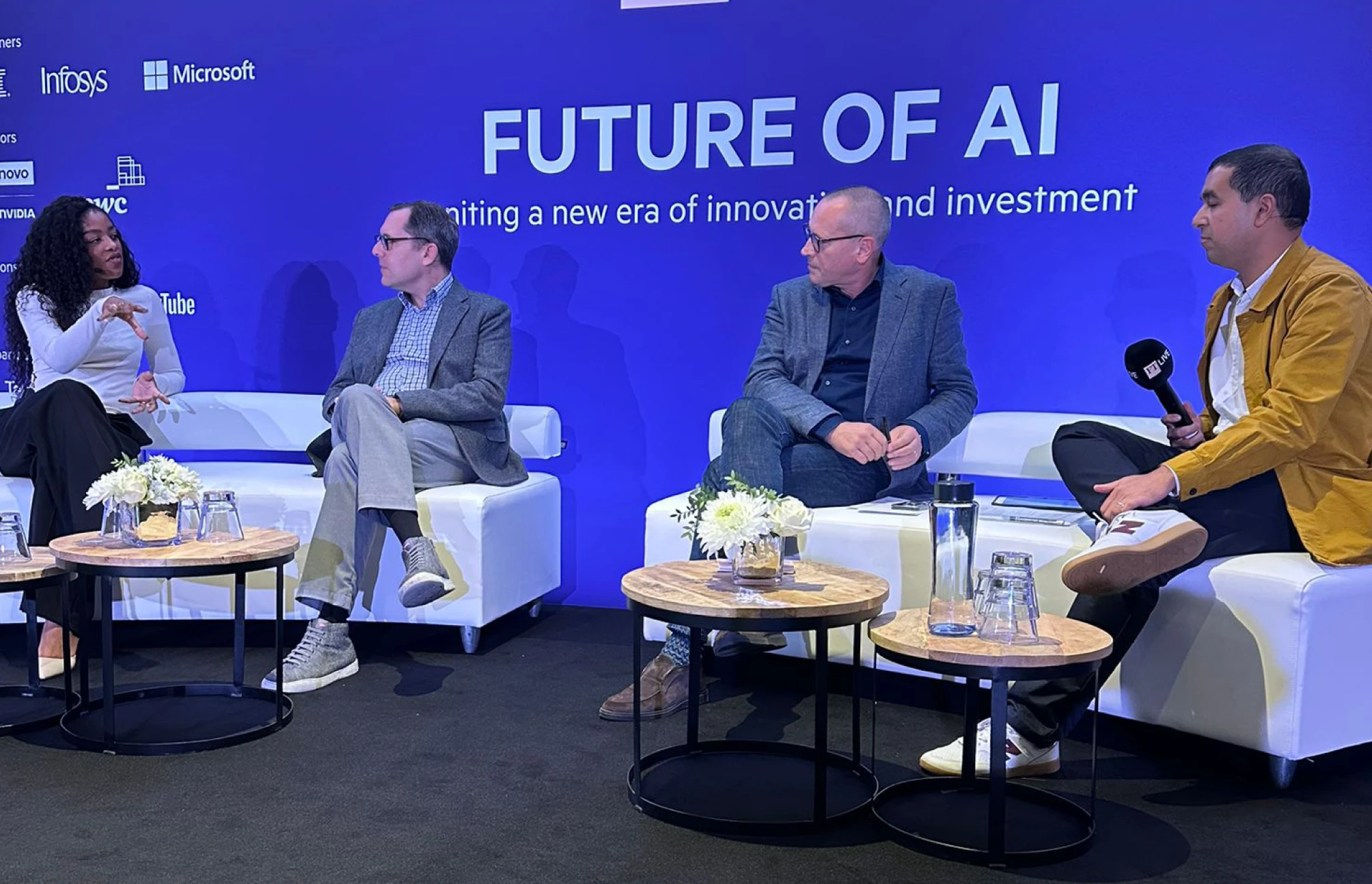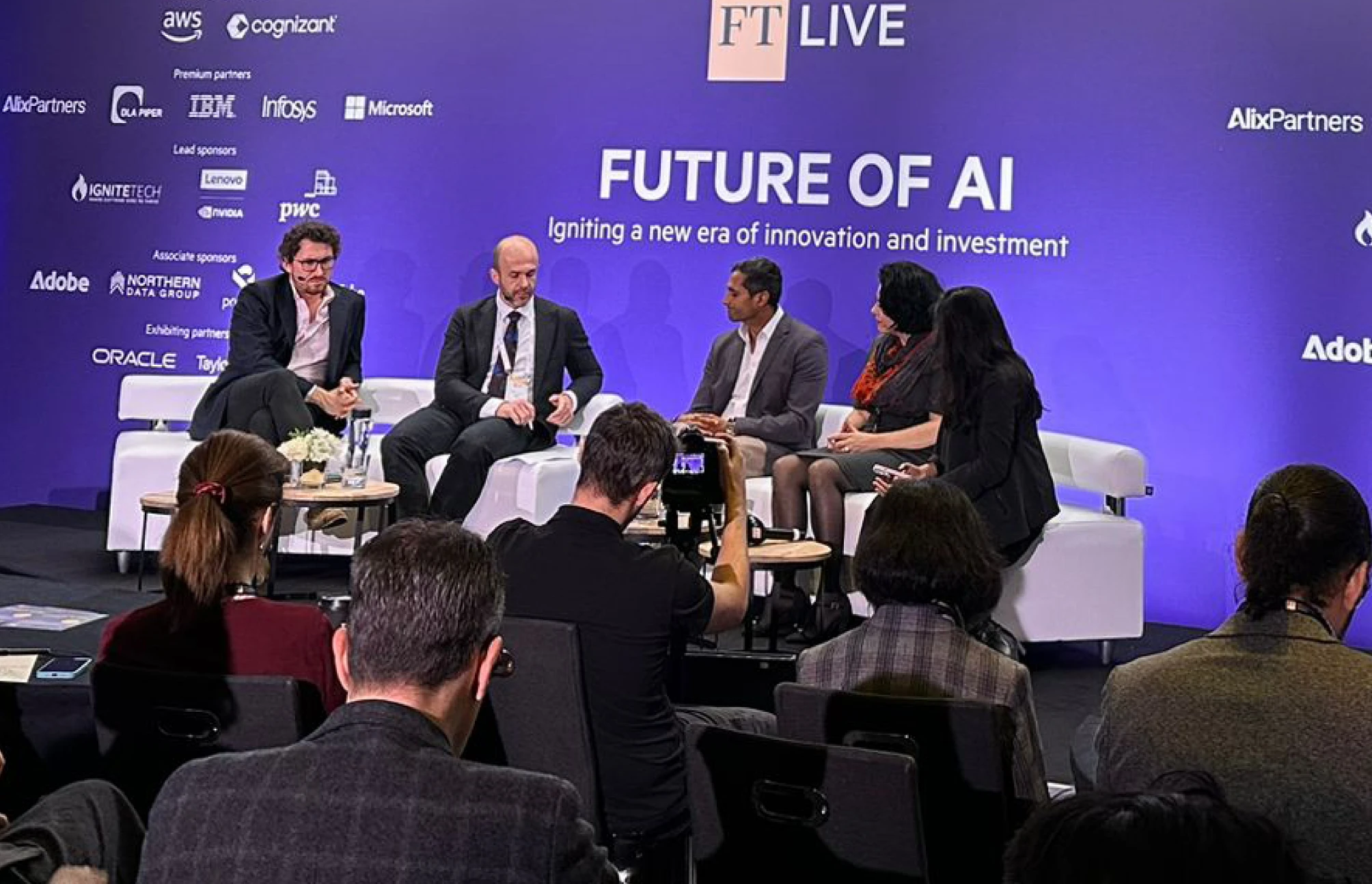Key learnings from FT AI Conference
1. Evolving Workforces
AI is redefining workforce requirements, increasing demand for skills in data, ethics, and digital literacy. Many businesses are now implementing “guardrails” to ensure ethical AI use – a crucial topic for clients interested in workforce development and the future of work.
2. Productivity Enhancement
AI’s ability to automate routine tasks enables teams to focus on strategic initiatives. This is a powerful advantage we can help clients incorporate into their operations, showing how AI can drive efficiency and innovation.
3. Investment and Economic Impact
Only two years into its current cycle, AI is already having a profound economic impact. Companies around the world are heavily investing in AI to lead in this transformative space, with an eye on unlocking its full economic potential.

4. Regulation and Trust
With AI’s influence growing, regulation and trust frameworks are essential. Meredith Whittaker, President of the Signal Foundation, provided compelling insights on the importance of establishing ethical standards for AI. As clients adopt AI solutions, these frameworks are crucial for aligning with compliance and building public trust.
5. Geopolitical Shifts and Military Concerns
The geopolitical impact of AI was another key topic, especially relevant in light of Donald Trump’s election victory, announced during the conference. This event, coupled with Elon Musk’s significant financial backing, raised important discussions about shifts in AI policy and international relations. Govenor Murphy of New Jersey shared some interesting views on this. There was also growing concern around the military use of AI, with attendees discussing the potentially dangerous implications of AI-driven weapons and autonomous systems in warfare.

6. Sustainability: Moving Towards Green AI
As AI usage grows, so does its environmental footprint. For example, a single ChatGPT query consumes enough power to run a 60-watt lightbulb for almost three minutes. “Green AI” innovations are increasingly relevant for clients focused on sustainability, as AI’s environmental impact becomes a central concern.
7. Risk Appetite: FOMO vs. Risk Aversion
Alexandra Mousavizadeh from Evident AI Index observed a divide in boardroom attitudes towards AI, with some leaders being risk-averse and others experiencing FOMO (fear of missing out). Organisations unwilling to be “pathfinders” may find themselves lagging behind, underscoring the importance of a balanced approach to AI adoption.
8. Human Touch in AI-Driven Personalisation
Personalisation is a key AI strength, but it still requires a human touch. As YouTuber Jade Beason noted, even the best AI tools need human insight to connect meaningfully with audiences. This balance is essential for clients aiming to combine automation with authentic interaction.
